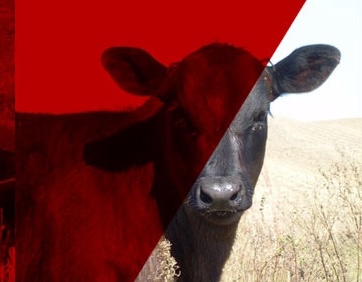For many ranch operations multiple enterprises are a part of the overall business. In addition to the cow-calf enterprise, land is owned, replacement heifers are developed, hay is harvested, and often, yearlings are wintered and grazed through the summer before being sold. Breaking the whole ranch into enterprises and identifying where value is being created and costs are occurring can show where opportunities exist to change and improve the profitability of the ranch business.
For example, an eye-opening analysis for many ranch owners is looking at the market value of the forage the ranch produces. Grass for summer grazing in Nebraska is quite valuable. The monthly grazing value of grass in Nebraska on a price per pair or head basis often leads surrounding states and the nation. This value is created by the ownership and management of the land enterprise. A challenging and sometimes uncomfortable question to ask is, do cattle enterprises capture the forage value produced on the ranch? If a ranch’s cattle enterprises had to “pay” fair market value for the grass grazed and the ranch-grown harvested feed fed, would they be able to do so and still be profitable?
Another major cost for most ranches is cow replacement. What does it cost to produce a bred replacement heifer? What was the heifer calf’s market value at weaning before she went into the development program? When all costs, including opportunity costs are added up, what does it cost to get a bred heifer into the herd?
This fall and winter a series of Unit Cost of Production workshops will be held across the Sandhills and in the Panhandle. At these workshops, ranchers will learn how to perform an economic analysis on a ranch operation that will enable them to calculate and understand their own unit cost of production. Using an example ranch, participants work through the different costs associated with the most common enterprises found on a ranch. Past participants have indicated the knowledge gained and conversations that occurred prompted them to look at their operations in a fresh way and see the value of resources produced and used on the ranch in a new light.
Below are dates, locations and contact information for pre-registration with the local host.
Jan. 13 and 14 at Scottsbluff: Panhandle Research and Extension Center. 8:30 am - 4 pm MST; contact Aaron Berger at 308-235-3122 or aberger2@unl.edu.
Feb. 2 and 3 at Mullen: Hooker County Community Center. 8:30 am - 4 pm MST; contact T.L. Meyer at 308-645-2267 or tl.meyer@unl.edu.
Feb. 7 and 8 at Basset: Basset City Building, 8:30 am – 4 pm CST; contact Hannah Greenwell at 402-387-2213 or hgreenwell2@unl.edu.
Cost is $50 per person and covers meals for both days. Please pre-register one week prior for a meal count. Payment is due the day of the workshop. Workshops are limited to 30 people per location. Contact Aaron Berger at 308-235-3122 with questions about the workshops.
Topics covered:
Budgets & cost of production, Marketing, budgets & management

